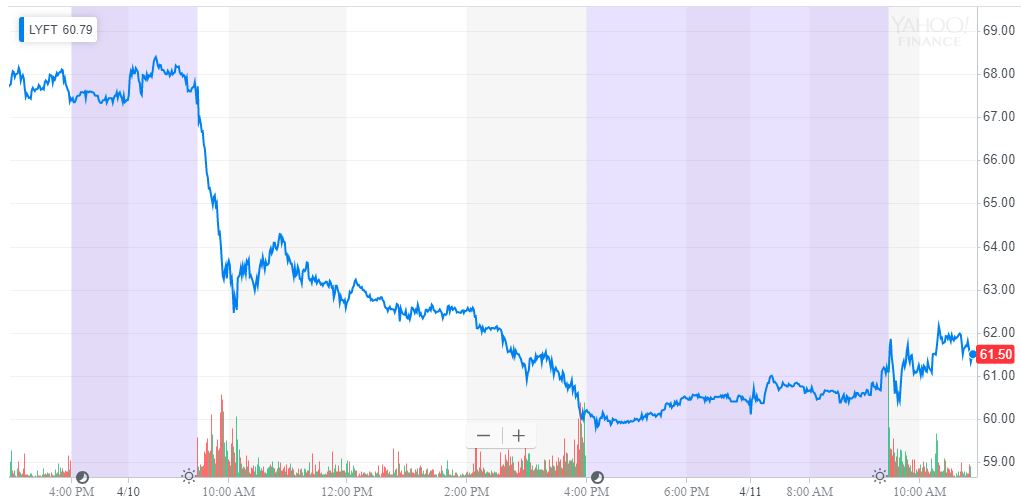Why Uber’s $100 Billion Valuation is Wildly Bullish for Lyft Stock

Uber's massive $100 billion valuation is surprisingly bullish for Lyft stock. | Source: REUTERS / Lucy Nicholson
Uber’s decision to value itself at $100 billion rocked Lyft stock on Wednesday, causing the embattled rideshare company’s shares to plunge as far as 10%. Contrary to the prevailing narrative , however, a strong Uber IPO would be wildly bullish for Lyft shares.
Uber’s $100 Billion Valuation Is a Stupid Reason to Dump Lyft Stock

Sell Lyft for whatever reason you like: the dual-class voting structure, the lack of a business model that makes money , or just because you’re an Uber groupie. What you shouldn’t do is dump your Lyft shares just because its larger competitor is worth twice as much as Tesla.
Here’s why.
The more valuable Uber becomes, the more likely it is to one day rectify its biggest mistake and finally purchase Lyft. A massive Uber IPO would also be further confirmation that investors believe in its business model, which Lyft appears to be unashamedly copying .
Moreover, competing stocks in nascent markets often track one another. If anything, Uber’s higher worth could see funds designated for ride-share exposure naturally flow into its smaller competitors.
IPO Risks Are Always Elevated
The bears keep pounding the table on Lyft, but the Uber IPO arguably presents the greater valuation risk. The smaller firm could be the safe play in ride-share due to its conservative structure. If the $100 billion behemoth is forced to trim its global expansion, then its competitors will look all the better in comparison.
Speaking of competition, investors need to break free from the “us versus them” paradigm. Sure, they’re competitors, but when talking about ride-share as a sector, a robust Uber IPO is good for the entire industry. The actual situation is clearly much more complicated than “Uber is worth more, so Lyft is worth less.”
Finally, due to its more conservative business model, once Lyft figures out how to monetize, it does have room to expand. Uber has gone all in on global dominance, which might cause it to get smaller before it gets bigger.